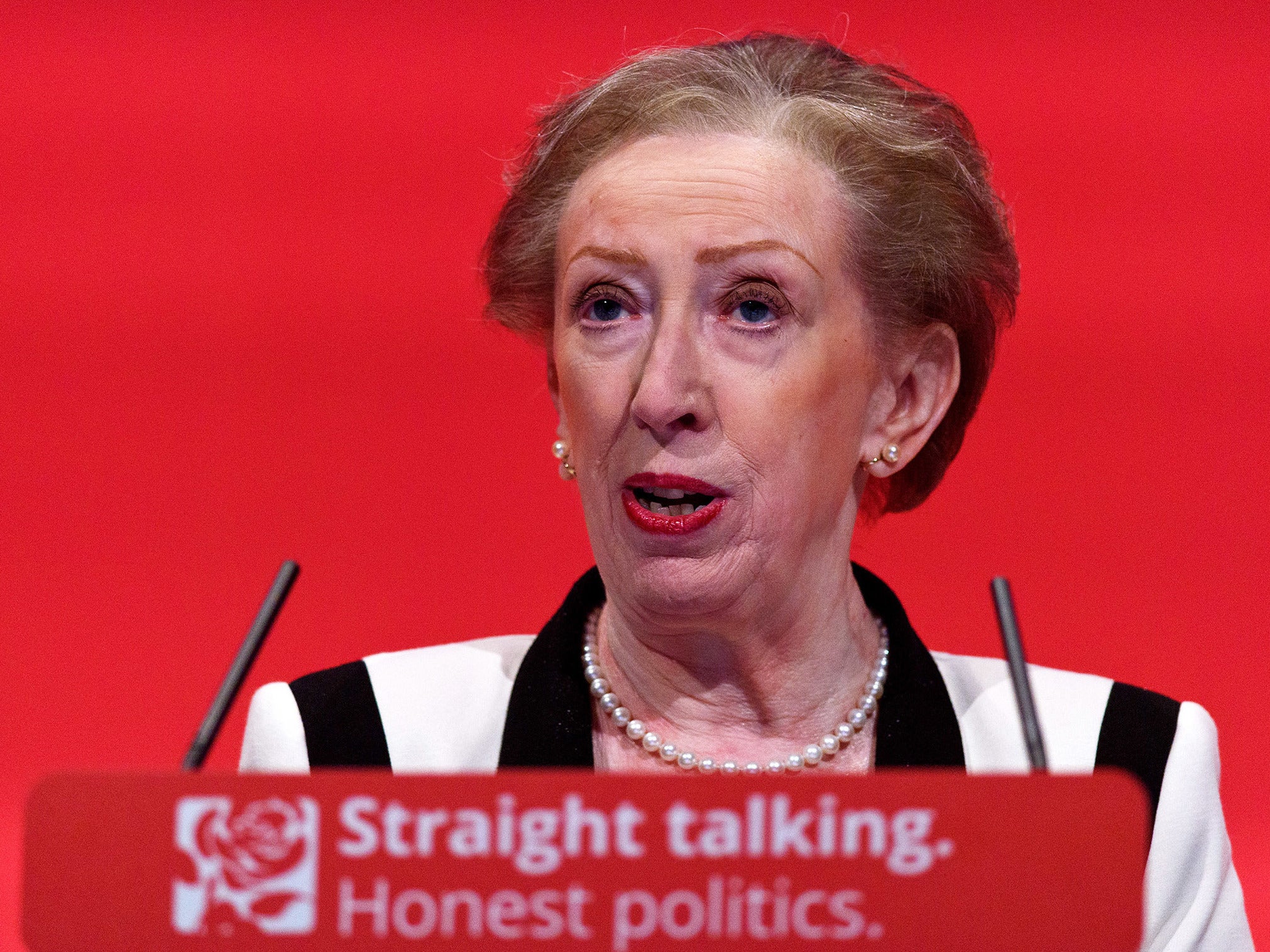This is what I’ve learned as Britain’s longest-serving female MP
Many of the groundbreaking economic and social changes that we risk taking for granted would not have occurred without the input of more women in parliament – and we still have a long way to go before we achieve real diversity


Your support helps us to tell the story
From reproductive rights to climate change to Big Tech, The Independent is on the ground when the story is developing. Whether it's investigating the financials of Elon Musk's pro-Trump PAC or producing our latest documentary, 'The A Word', which shines a light on the American women fighting for reproductive rights, we know how important it is to parse out the facts from the messaging.
At such a critical moment in US history, we need reporters on the ground. Your donation allows us to keep sending journalists to speak to both sides of the story.
The Independent is trusted by Americans across the entire political spectrum. And unlike many other quality news outlets, we choose not to lock Americans out of our reporting and analysis with paywalls. We believe quality journalism should be available to everyone, paid for by those who can afford it.
Your support makes all the difference.Earlier this year, on 6 February, we celebrated 100 years of some women finally gaining the vote. On 21 November we will mark the passing of another centenary, the Parliament (Qualification of Women) Act, which allowed women over 21 to become MPs for the first time.
It is this act that made it possible for me to first be elected as MP for Lincoln in 1974, and then, after losing in 1979, to be returned as MP for Derby South in 1983. I now find myself – to my astonishment – the longest-serving female member of the House of Commons that there has ever been.
I suspect that this is because, although women may have been allowed to stand for parliament for 100 years, it has been an uphill struggle for many women either to stand as candidates or – still more – to be elected. I well recall being fulsomely praised for some work I had done, but stunned by the punchline, “you ought to marry some nice young Labour MP. You’d be such a help to his career” – and the astonishment when I politely indicated that I might like the career for myself.
For many years the overwhelming majority of women were selected to stand in the most marginal seats. There were women who had safer seats but they were very much the minority.
For example, when I was first elected in 1974, six of us were new women MPs but at the next election three of us were defeated, and although I have held Derby South since 1983 my first majority there was 481, and it did not rise above 1,500 for two more elections.
Parliament then was very different to how it is now – such a very small number of women were elected that it is safe to say we stuck out. We had a small separate section in the MPs’ cloakroom, and some of the older members, in particular, found it hard to adjust.
One well-meaning individual managed to congratulate Ann Taylor on the birth of Helene Hayman’s baby, and Hayman on my promotion to the whip’s office!
More and more effort was made to increase the number of women MPs, and after the 1987 election the separate section in the cloakroom was abandoned because “there are just too many of you ladies now”, as one House official told me.
We have come a long way since those days, with a record high of 32 per cent women MPs elected to the House of Commons in the 2017 general election. This would not have happened at all without the courage and determination of the suffrage campaigners. Nor would our numbers have risen as they have without the continued determination and persistent pressure of MPs like Jo Richardson, the very first women’s minister in the shadow cabinet.
It was Richardson, with Neil Kinnock’s strong encouragement, who succeeded in changing the culture, certainly of the Labour Party, and gradually of parliament as a whole, to ensure that women were prominently included in all aspects of political life, and that their voices must always be heard and heeded.
I believe it is to the impact of those different voices and the inclusion of those different experiences that we owe many of the economic and social changes that today we risk taking for granted.
The introduction of a national minimum wage, which so transformed the lives of many of the lowest paid women; the continued pressure for real equality in the workplace; the growing recognition of the importance of social care – all of these are fought for by women and men alike, but all have much benefited from the practical insights and understanding which flow from the input of more women MPs.
Today, women have held a wide variety of ministerial and shadow ministerial posts, including the great offices of state. But there is still further to go in encouraging diversity and equality, as we have all been recently reminded, by Dame Laura Cox’s inquiry.
With this in mind, I cannot stress enough the importance of this year’s UK Parliament Week, which takes place from 12-18 November. This week encourages the voters and citizens of tomorrow, from different backgrounds and communities, to understand how vital their participation in our democracy is.
Politics is not some strange activity, quite separate from the problems and ambitions of ordinary people. It is the process by which we make the rules that shape the lives of all of us, both in this country and far beyond. And we don’t have to fight to even have the freedom to make our voices heard, as the suffrage campaigners did, and as so many still do across the world today.
Parliament Week reaches out to a diverse range of groups and organisations around the country to hold events and get the message out to their communities that writing to their MP, signing a petition or joining a free learning programme are some of the many ways they can be heard. Everyone in this country should know that their voice matters, and that there is a place where it can be heard.
Margaret Beckett is the MP for Derby South
Join our commenting forum
Join thought-provoking conversations, follow other Independent readers and see their replies
Comments